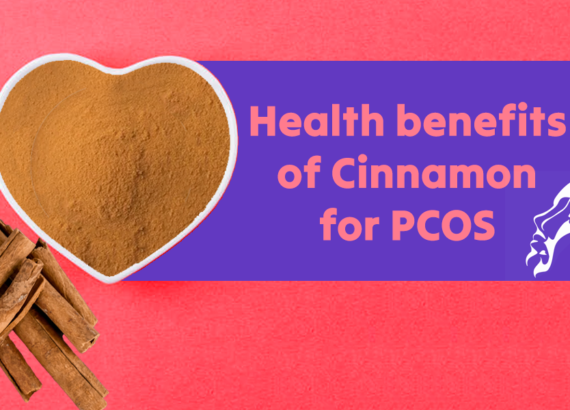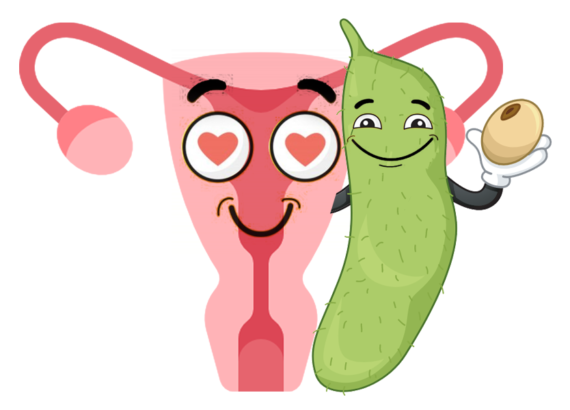Ginger Health Benefits PCOS | Improve Your Health Naturally

Ginger and Hermones: A Powerful Combination for Managing PCOS Symptoms
Polycystic ovary syndrome (PCOS) is a common hormonal disorder that affects millions of women worldwide. It is characterized by hormonal imbalances that can cause a range of uncomfortable symptoms, including irregular periods, weight gain, and infertility. Fortunately, nature has provided us with a powerful ally in the fight against PCOS – Hermones, a natural supplement for hormonal imbalance that contains ginger as one of its key ingredients.
Ginger has been used for both culinary and medicinal purposes for thousands of years. In Ayurvedic medicine, ginger is highly regarded for its carminative, sweat-inducing, anti-seizure, and blood circulation stimulating properties. But what makes ginger so effective for managing PCOS symptoms when combined with Hermones? Let’s dive into the benefits of ginger for PCOS and how Hermones play a significant role in the fight against PCOD/ PCOS.
Adding ginger to your diet can help regulate menstrual cycles and reduce inflammation – Dr. Nupur Gupta
But can ginger really help with PCOS? The answer is yes! In this article, we will explore the surprising benefits of ginger for PCOS and how to incorporate this superfood into your diet.
-
Reduce Inflammation and Oxidative Stress : One of the major underlying causes of PCOS is chronic inflammation and oxidative stress in the body. Fortunately, ginger is a natural anti-inflammatory and antioxidant, which means it can help reduce inflammation and oxidative stress. This is great news for women with PCOS, as reducing these factors can help manage symptoms such as insulin resistance, weight gain, and menstrual irregularities.
- Regulates Hormones : Hormonal imbalances are a hallmark of PCOS, and ginger has been shown to help regulate hormones in the body. Specifically, ginger has been found to reduce levels of testosterone, a hormone that is often elevated in women with PCOS. By balancing hormones, ginger can help alleviate PCOS symptoms like hair growth, acne, and irregular periods.
-
Improve Insulin Sensitivity : Insulin resistance is a hallmark feature of PCOS, leading to elevated insulin levels and increased androgen production. This, in turn, can lead to weight gain, irregular periods, infertility and high blood sugar, and other health issues. Luckily, ginger has been shown to improve insulin sensitivity, making it a valuable tool for managing PCOS. Studies have shown that ginger can improve insulin sensitivity, which means your body can better use the insulin it produces to regulate blood sugar levels. By improving insulin sensitivity, ginger can help regulate menstrual cycles, reduce androgen levels, lower testosterone levels, and improve fertility. This can help reduce PCOS symptoms and improve overall health.
Additional Benefits of Ginger for PCOS
In addition to its anti-inflammatory and insulin-sensitizing properties, ginger offers a host of other potential benefits for women with PCOS. These include:
- Blood sugar management : Ginger can help lower blood sugar levels and improve glucose metabolism, making it a valuable tool for managing insulin resistance and diabetes.
- Improved fertility : By reducing inflammation and improving insulin sensitivity, ginger can help improve fertility in women with PCOS.
- Weight loss : Ginger can help suppress appetite and increase fat burning, making it a valuable tool for weight loss and management.
- Anti-inflammatory effects : In addition to reducing inflammation in the body, ginger can help reduce inflammation in the ovaries, which may be beneficial for managing PCOS.
- Digestive health support : Ginger can help soothe digestive issues such as nausea, bloating, and indigestion.
- Cardiovascular health support : Ginger can help improve cardiovascular health by lowering blood pressure, reducing cholesterol levels, and improving blood flow.
- Reducing menstrual pain and cramps : Ginger’s anti-inflammatory and pain-relieving properties make it a valuable tool for reducing menstrual pain and cramps.
- Relieving nausea and vomiting : Ginger has been used for centuries to treat nausea and vomiting, making it a valuable tool for managing morning sickness during pregnancy.
- Improving digestion and gut health : Ginger can help improve digestion and support gut health by promoting the growth of healthy gut bacteria.
- Boosting immune function : Ginger’s immune-boosting properties make it a valuable tool for preventing and managing infections and illnesses.
- Lowering cholesterol levels : Ginger can help lower LDL (bad) cholesterol levels, reducing the risk of heart disease and other chronic conditions.
- Improving thyroid function : The thyroid gland plays a critical role in hormonal regulation. When the thyroid gland is not functioning properly, it can cause hormonal imbalances and a range of health problems. Ginger has been shown to improve thyroid function and promote hormonal balance.
- Protecting against certain cancers and chronic diseases : Ginger’s antioxidant and anti-inflammatory properties may help protect against certain types of cancer and chronic diseases.
- Improving mood : PCOS can take a toll on mental health, leading to symptoms such as depression and anxiety. Ginger has been shown to have a positive effect on mood by reducing stress and improving brain function. It can also help alleviate PMS symptoms, which can improve overall mood and well-being.
Disadvantages of Ginger for PCOS
While ginger offers a host of potential benefits for managing PCOS, there are a few potential drawbacks to keep in mind:
- Taste : Some people may find the taste of ginger unpleasant, making it difficult to incorporate into their diet.
- Pregnancy : Pregnant women should also avoid taking ginger supplements, as high doses of ginger may increase the risk of miscarriage.
- Side effects : Ginger can interact with certain medications, such as blood thinners and diabetes medications. Additionally, consuming large amounts of ginger can cause stomach upset, heartburn, and diarrhea in some people.
How to Incorporate Ginger into Your Diet
Now that we’ve explored the many benefits of ginger for PCOS, let’s talk about how to incorporate this superfood into your diet. Ginger can be consumed in a variety of ways, including::
- Add fresh ginger to smoothies or juices for a spicy kick.
- Adding ginger to baked goods
- Use ground ginger in your cooking, such as in curries, soups, or stir-fries.
- Make ginger tea by steeping sliced ginger in hot water.
- Use ginger essential oil in aromatherapy or massage.
- Taking ginger supplements
When buying ginger, look for fresh, firm roots with smooth skin and a spicy aroma. You can store ginger in the refrigerator for up to two weeks or freeze it for longer storage.
Best Types of Ginger for PCOS
Ginger can be consumed in many different forms, making it easy to incorporate into your daily routine. The best types of ginger for managing PCOS include:
- Raw ginger : Raw ginger contains the highest amount of gingerol, making it the most potent type of ginger for managing PCOS symptoms.
- Dried ginger : Dried ginger is a convenient way to add ginger to your diet, and it has a long shelf life.
- Ginger tea : Ginger tea is a soothing way to consume ginger and can help alleviate nausea and other digestive symptoms.
- Pickled ginger : Pickled ginger is a common condiment in Japanese cuisine and can help aid digestion.
- Ginger ale : Ginger ale is a refreshing way to consume ginger, but be sure to choose a brand that doesn’t contain added sugars.
- Crystallized ginger : Crystallized ginger is a sweet and spicy treat that can help alleviate nausea and other digestive symptoms.
- Ginger oil : Ginger oil can be used topically to help alleviate muscle pain and other symptoms associated with PCOS.
- Fresh ginger juice : Fresh ginger juice is a potent way to consume ginger and can help manage inflammation and other PCOS symptoms.
- Candied ginger : Candied ginger is a tasty way to consume ginger, but be sure to consume it in moderation as it contains added sugars.
- Ginger supplements : Ginger supplements are a convenient way to consume ginger and can help manage inflammation and other PCOS symptoms.
The great thing about ginger is that it can be used in so many different ways, so you can choose the form that best fits your preferences. If you enjoy cooking, fresh ginger is a wonderful ingredient that will take your recipes to the next level.
Conclusion
Ginger is a powerful root with many health benefits, including reducing inflammation, regulating hormones, improving insulin sensitivity, and aiding in weight loss. For women with PCOS, ginger may be an effective natural remedy for managing symptoms and improving overall health. Hermones, a natural supplement for hormonal imbalance, contains ginger as one of its key ingredients, making it a valuable tool in managing PCOS symptoms. By incorporating Hermones into your routine, you can harness its potential benefits for managing PCOD/ PCOS symptoms and supporting overall health and wellness, so why not give it a try?
FAQs
Q: What is the PCOD full form?
A: The full form of PCOD is Polycystic Ovarian Disease. It refers to a hormonal disorder that affects the ovaries. For detailed information about PCOD, its causes, symptoms, diagnosis, and management, you can visit our blog post on “PCOD full form” that provides in-depth insights into PCOD.
Q: How much ginger should I consume to regulate my hormones?
A: The amount of ginger you should consume depends on your individual needs and health status. However, most studies suggest that consuming 1-2 grams of ginger per day can provide significant health benefits.
Q: Can ginger be used to treat PCOS?
A: While ginger cannot cure PCOS, it can help alleviate some of the symptoms associated with the condition. By reducing inflammation, balancing hormones, and promoting weight loss, ginger can be a valuable tool in managing PCOS.
Q: Are there any side effects of consuming ginger?
A: In general, ginger is considered safe when consumed in moderate amounts. However, consuming large amounts of ginger can cause digestive upset, such as nausea and diarrhea. If you have any concerns about consuming ginger, you should talk to your healthcare provider.
Q: Is ginger safe to consume during pregnancy?
A: While ginger is generally considered safe during pregnancy, it’s always best to consult with your doctor before adding any new foods or supplements to your diet.
Q: Can ginger interact with medications?
A: Yes, ginger can interact with some medications, including blood thinners and medications for diabetes. If you’re taking any medications, it’s important to talk to your doctor before adding ginger to your diet.





